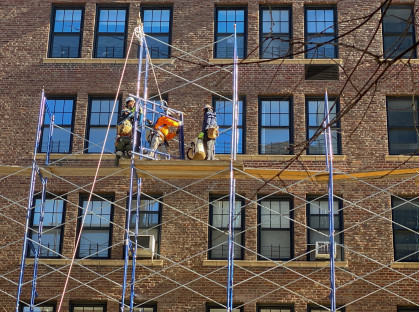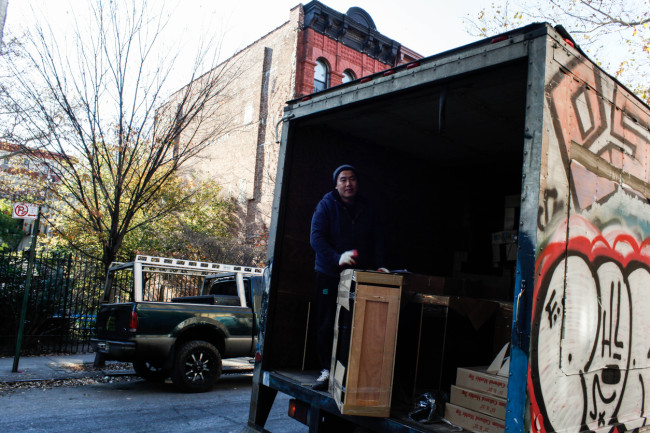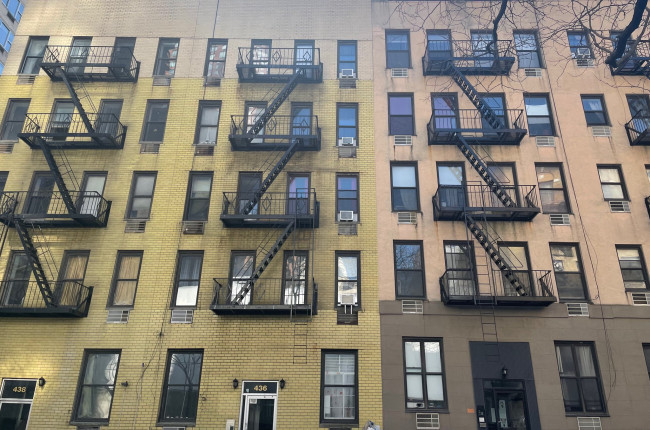- Owners and boards are liable for accidents that take place on their property under New York Labor Law
- To avoid costly lawsuits, boards should make sure a contractor’s insurance covers them in the case of an incident

Strict liability is a higher standard of responsibility for contractors and building owners, including boards.
iStock
Apartment renovations are time consuming, expensive, and downright annoying for residents. But for New York City condo and co-op boards, they also present a legal risk.
That's because under sections 240 and 241 of New York Labor Law, buildings can be held liable for certain types of worksite injuries even if they don’t directly supervise the work. That’s because the rule, dubbed the scaffold law, applies something called strict or absolute liability to co-ops and condos, as well as rentals.
Owners, condos, and co-op boards need to understand the legal risks renovations present, and how to insure themselves against it, says attorney Andrew Freedland, a partner in Herrick Feinstein’s real estate practice.
“Condos and co-ops really need to know about this to make sure they have the right professionals to guide them so they’re not opening themselves up to unnecessary and avoidable liability,” Freedland says.
What does strict liability mean for renovation projects?
Essentially, strict liability is just a higher standard of responsibility that both contractors and building owners, including boards, bear to provide working conditions.
If an injury happens on an owner’s property, they are held liable for the accident, even if the injured person was partially at fault, Freedland says. (There are exceptions, such as if the worker’s decision was the sole cause of the accident.)
“If an injury happened on your property you’re liable for it,” Freeland says. “There’s essentially no claim for the owner against the individual who is responsible for their portion of the negligence, whereas you would find that with other types of negligence.”
For example, if someone is drunk, trips, and falls on a building's damaged stairs, a property owner would only be held responsible for a portion of the damage caused by the defective stairs, while the person would be held partially liable for their intoxication. But in renovation accidents covered under the scaffold law, “the property owner is completely liable for the injuries,” Freedland says.
The scaffold law applies to elevation-related injuries—such as a worker falling from a window, or a piece of equipment falling and hitting an employee on the head—during construction, demolition, alteration, and repairs for buildings. It does not cover one- and two-family dwellings, according to the law.
What does this mean for my building?
The scaffold law is intended to protect workers on risky job sites; in 2022, at least nine workers died at NYC construction sites and five of those deaths involved scaffolding or sidewalk sheds. It pays costs that workers’ compensation might not cover—such as lost wages—but that can run up legal settlements in the millions for owners found at fault.
The scaffold law might seem intimidating, but buildings that are aware of the risk make an effort to work with trusted contractors and are properly insured don’t have that much to worry about. If your building is embarking on a project, one of the first things to do is to make sure your contractor’s insurance covers you in the case of an accident, and that it meets your building manager’s coverage requirements.
“In my practice, I know that when I have a building that's doing construction work—whether it’s a facade project, or a roof project, or the renovation of a lobby, any project—one of the early things that I say is, where’s the contractor’s insurance and is it being reviewed by your insurance broker to make sure its adequate?” Freedland says.
Boards should also watch out for exclusions in a contractor’s insurance policy that would limit coverage. Watch out for policies that have height limitations, that only cover the contractor and not the condo or co-op board, that don’t cover leased equipment or subcontractors, and that only cover certain work locations—such as the inside of the building but not the facade or roof work.
What should I watch out for from my contractor?
Getting proper coverage can be difficult, particularly if boards don’t know what to look for, says Michael Conte, a managing partner at insurance firm Honig Conte Porrino.
“Most insurance policies that are presented to these building owners and boards do not cover it,” Conte says. “The sophisticated boards, they're well aware of this. You're not telling them anything they don't know. The less sophisticated boards—and there are plenty of them—they have no idea.”
Conte once reviewed a contractor project for a family member as a favor, and quickly realized that the board involved had failed to ask for the proper insurance requirements under New York Labor Law.
“Frankly, that board is putting the building in jeopardy, whether they realize it or not.” Conte says. “[But] it's their job to ask the proper questions.”
Boards should inform their contractors of the coverage limits their building or management company requires, and require a contractor to provide a certificate of insurance (or COI for short). You should also make sure the COI is legit, as Conte says he’s caught a handful of faked certificates just this year.
It can be difficult for contractors to secure insurance for small projects because of the rising cost of coverage in New York. Boards should be wary of low-ball offers; a contractor might give a building an inexpensive estimated cost for a project, only to raise it later when they figure out the cost of insurance. Conte says insurance can raise the price of a project by thousands.
“I will not quote a smaller contractor unless he gives me the building’s insurance requirements,” Conte says. “He has got to buy workers compensation, he's got to get the proper liability insurance, and all of a sudden what he thought was going to be a $5,000 cost of insurance has escalated to $75,000. That job isn't worth it for him.”
You Might Also Like
Sign Up for our Boards & Buildings Newsletter (Coming Soon!)
Thank you for your interest in our newsletter. You have been successfully added to our mailing list and will receive it when it becomes available.






















